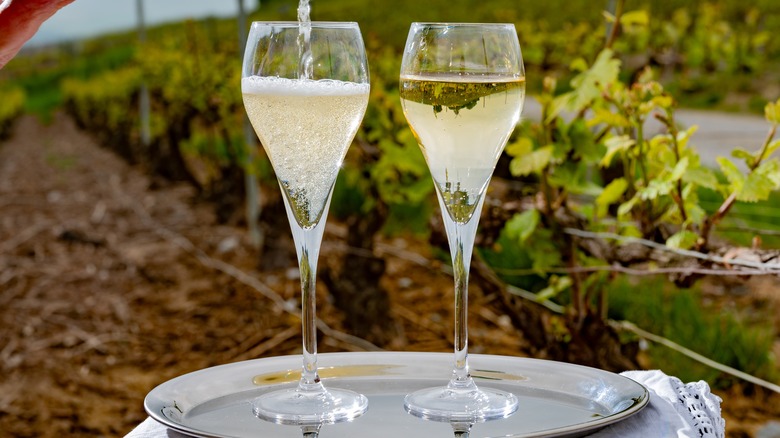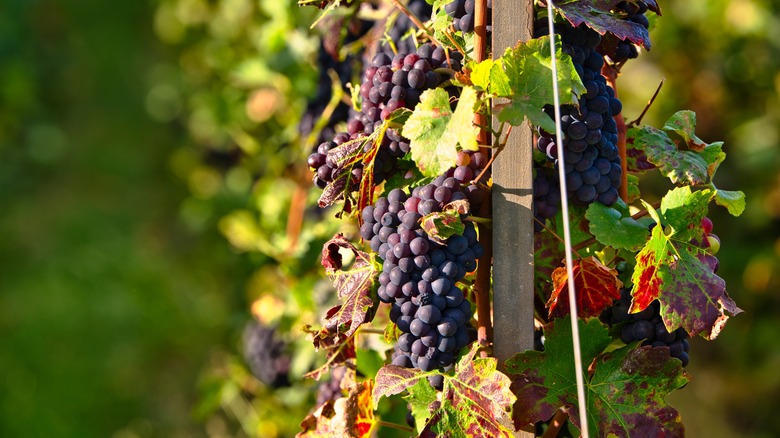Is Champagne Made Of Grapes?
If you're wondering whether or not Champagne is made from grapes, the short answer is yes. In order for the wine to be designated as Champagne, the grapes must come from its namesake region in northern France. But what makes that area of the country so special? It is a unique district with the perfect combination of climate, soil, and a long-established tradition to produce the bubbly wine lovers enjoy.
Champagne is also acrafted from a specific blend of grapes to create its unique character , namely pinot noir, chardonnay, and pinot meunier. Some Champagnes instead use a combination of pinot blanc, pinot gris, and voltis grapes. This combination, however, isn't as popular as the aforementioned one.
Winemakers often use the traditional method — often referred to as méthode champenoise — to create the tasty bubbly beverage. This technique involves fermentation and aging the cuvée, the first round liquid grape juice meant to be turned into higher-quality Champagne. A second fermentation in the bottle, utilizing sugar and yeast, is required to add the bubbles. The bottles are then sealed and rested for months to years. The last step involves placing the bottles in a vertical position, which allows any remaining yeast to move into the neck of the container. This extra yeast is removed before the bottles are put out for purchase.
How Champagne differs from sparkling wine
Fruity as it may be, don't confuse Champagne with sparkling wine like prosecco, which originates in northern Italy. Unlike Champagne, sparkling wine can be produced using three different methods — the traditional method (like Champagne), a tank method (developed at the turn of the 20th century), and an ancestral method (which eliminates the second fermentation). Other techniques, such as carbonation, may be used but these are usually associated with lower quality brands.
The processing method is oftentimes dictated by the authorizations in a country. For instance, Crémant wines (found in France and Luxembourg) must use the traditional Champagne method for producing sparkling wines, or else they simply won't be granted that official designation. Other countries uphold similar appellations for their sparkling wines, while some regulations also dictate the type of grape that must be used. For instance, Prosecco now must be made from a majority of a specific grape varietal (the Glera) in order to properly be known as Prosecco.

